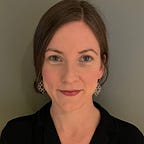Learning from our students
As I sit at Bridgehead, reading introductory letters from students in my ENG2P class at Adult High School, I am overwhelmed by my privilege; both, for my position in life, and for being in the position where I will be a learner in my own classroom.
The make-up of my English class is diverse: there are students from Eritrea, The DRC, Somalia, Afghanistan, Iran, Iraq, Sudan, Jordan, and Syria. There are students who have been making their way to Canada for years. Some of whom have spent more than 15 years in refugee camps. There are single mothers of 5. Older brothers who have lost their parents and made the journey to Canada with their younger siblings. There are students who are have had to leave their families behind.
But, equally important to note is that the students in my class are engineers, doctors, nurses, kindergarten teachers, mechanics, mothers, fathers, sons and daughters. Some of them hold master’s degrees, and doctorates. Most of them already have high school diplomas. Some of them have more than one high school diploma because they have completed their high school equivalences during a prolonged stop along the way to Canada. And, here they are. In my classroom. Grateful for every moment of instruction.
And I wonder what I have to offer these students in terms of “lessons.” My students will be the teachers this semester. My role as teacher is to help them navigate the complexity of social and cultural norms, and to provide as much language support as possible. They have so much to offer our country and community, but are restricted by one main barrier: language. But, let’s be honest, this one barrier is actually more like 100 barriers. Because to learn English, you have to be able to make it to school. And in order to make it to school, you first have to feed & care for your family. And to feed & care for your family, you have to work nights. And to work nights, you need a manager that will give you night shifts. And if they do, then you probably don’t have much energy left for school. And there you have it: you are forced to make a choice between family and school. And when I think about how I am currently nursing my 4 year old son’s second flu of the season, I know the choice I would make.
And before you know it, one barrier becomes 100 barriers…
And so, I sit here reading about the lives of my students and thinking about how to tackle 100 barriers in one semester. And, I realize that maybe this is where my students can tell me what they need. They have already overcome 100 barriers. They probably have some insight about how to tackle 100 more.
